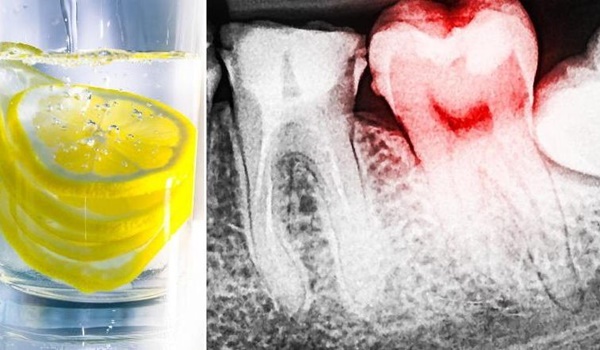Lemon and lemon juice are extremely beneficial and their numerous uses have been documented, proven, and revealed numerous times. However, the consumption of this amazing fruit and its juice is still not without a flaw.
All citrus fruits damage the teeth as a result of the acids they contain. Lemons have high amounts of citric acids, which causes damage the enamel of the teeth.
Tooth enamel is extremely difficult to grow back, and in the case of a major damage, it cannot be repaired.
These are the symptoms of enamel erosion:
Tooth Sensitivity – The dentin is exposed to the tooth nerve. In the case of an enamel erosion, the inside of the tooth is exposed to the different temperatures of the food you consume, causing uncomfortable, and slightly painful, sensation.
Tooth Discoloration – The white look of the teeth is due to enamel, so if it is worn away, teeth may turn yellow, as dentin, which is formed inside the teeth, is showing through.
Transparent Edges – In the case of a thin enamel, or weakened, the edges of the teeth are transparent.
Yet, this does not mean that you should stop consuming this fruit (and its juice )and avoid its numerous benefits. In fact, there are certain things you can do in order to prevent enamel damage, including:
- In order not to wear away the enamel, even more, do not brush the teeth immediately after drinking freshly squeezed lemon juice, as there is still some citric acid on the teeth. Moreover, you should rinse the teeth with water before you brush them.
- Carefully drink this beverage or use a straw when consuming it, in order to avoid its contact with your teeth.
- You can also replace the warm lemon water with a cold one, and you will thus lower the amount of acid that comes in contact with your teeth.


